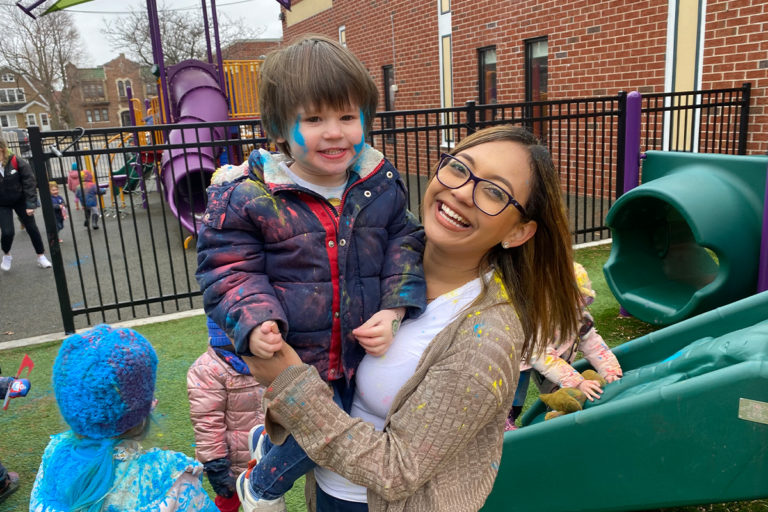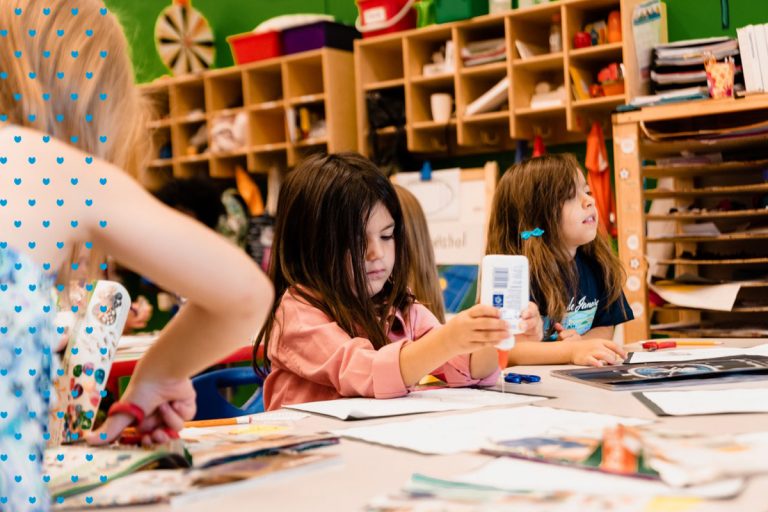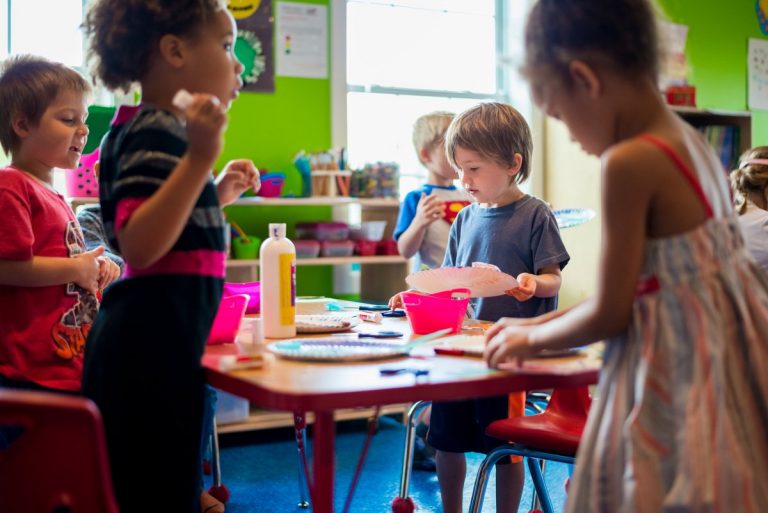The Ultimate Guide to Kindergarten Readiness: Benefits and Preparation Tips for Families
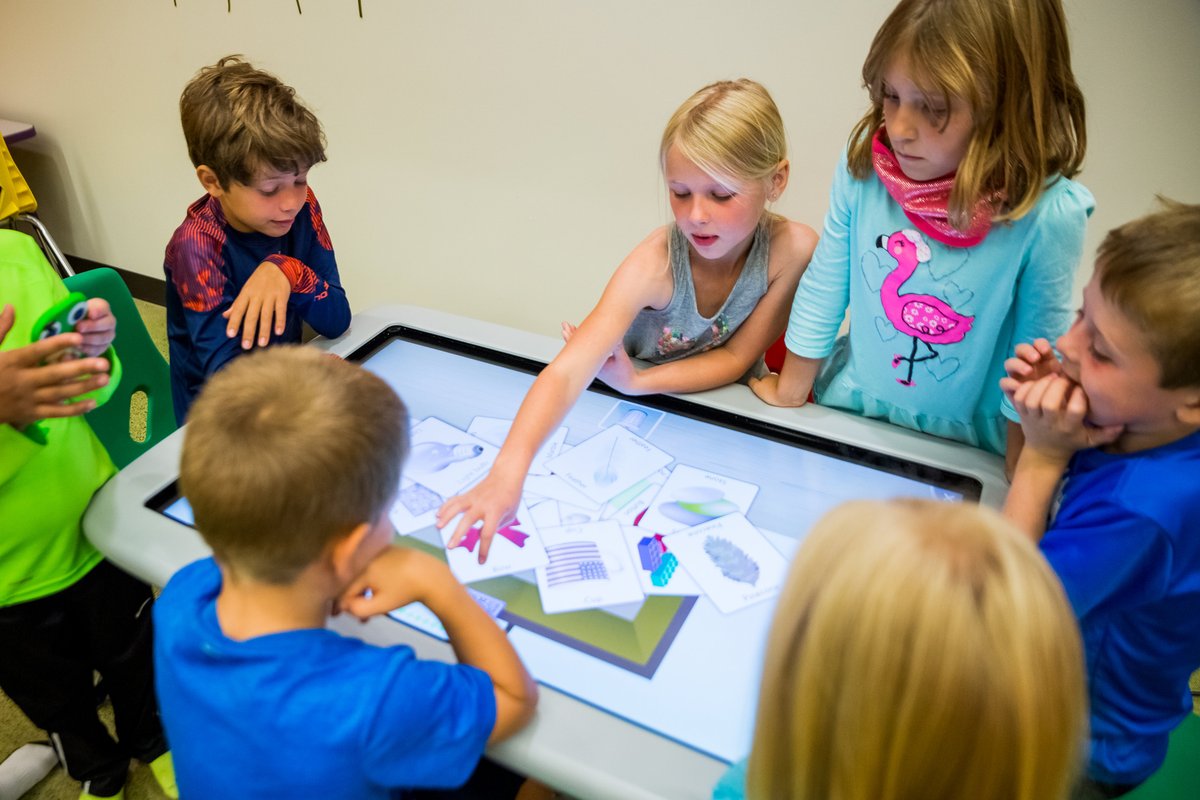
What is Kindergarten Readiness?
Kindergarten readiness refers to a child’s maturity level and ability to negotiate the demands of formal schooling as they enter kindergarten. A child is ready for kindergarten if they can participate in both the educational and social aspects of the classroom.
“When kids arrive at kindergarten and they have what we call readiness skills – we usually focus on language development, literacy development, social/emotional skills, like being able to regulate your own behavior – kids who have those skills tend to do very well in kindergarten,” said Laura Justice, director of the Crane Center for Early Childhood Research and Policy in the College of Education and Human Ecology (EHE).
At Casa de Corazón, we know that kindergarten readiness requires a holistic approach. Our bilingual, intercultural curriculum equips kids with the cognitive, social, and emotional skills they need — with global perspectives and appreciation for diversity built in.
Why Preparing for Kindergarten Matters
“Success in kindergarten is an indicator that students will be able to do well throughout school and in career paths,” says Justice. The latest research shows that a child’s skills coming into kindergarten, like self-regulation and basic letter and number identification, can forecast academic trajectories. Kindergarten readiness has even been shown to be a predictor of successful high school completion.
“What we argue is that the workforce readiness skills that employers are looking for are the same skills that we want kids to have when they walk into kindergarten,” Justice says. One way to increase academic proficiency is to help children begin school fit for the challenges they will face throughout their educational journey. Casa de Corazón’s holistic curriculum gives young children foundational skills for both kindergarten and long-term success.
How to Prepare Your Child for Kindergarten
Children entering kindergarten need to be ready on an emotional, academic and social level to succeed in school. Parents and educators both play essential roles in helping children to develop the skills necessary for kindergarten readiness.
Emotional Preparation
Parents play a major role in helping kids learn the emotional coping habits they need to succeed in a classroom setting and develop healthy relationships with others. Emotional coping skills begin at home. “The simplest, easiest thing that parents can do, in terms of early cognitive development, is have frequent conversations with your child that are sensitive and responsive,” says Justice.

Here are some concrete ways kids can practice emotional intelligence before entering kindergarten:
Foster Independence: Give children small tasks to boost confidence and self-reliance. You might consider setting up a chore chart to help create accountability and a feeling of self-reliance in kids as young as three.
Encouraging Open Communication: Teaching children to express their thoughts and feelings can helps improve social intelligence, allowing children to identify feelings and implement coping strategies when needed. At Casa, we encourage open communication and emotional expression through mindfulness practices and circle time discussions. These safe environments allow children to share their thoughts and learn coping strategies collaboratively.
Handling Separation Anxiety: Dropping off a child at kindergarten for the first time is an emotional moment. It might help to create a secret handshake or teach them a self-assurance phrase that they can repeat to themselves throughout the day to cope with anxiety.
Academic Preparation
Children develop literacy and communication skills before kindergarten begins. Literacy development starts to happen at home. Strong letter identification skills at the time of school entry may enhance a child’s ability to map letters onto corresponding sounds. This provides a strong foundation for developing reading skills. Before kindergarten, caretakers should use books and daily learning opportunities to help kids connect sounds to words and sense to numbers.
Casa’s Pre-k program focuses on letter and number identification through engaging, hands-on activities. Children explore pre-reading skills with storytelling sessions that invite participation. They develop number sense by counting organic meal ingredients and measuring during science experiments, among other daily teaching moments. This structure helps children develop letter identification, number sense, and self-regulation well before they enter formal schooling.
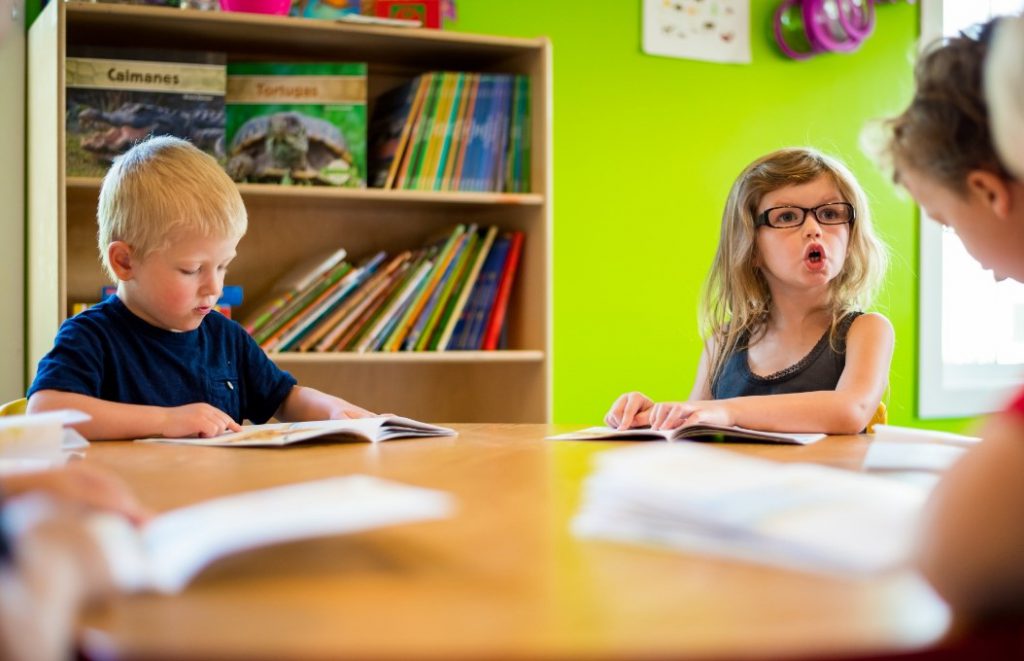
Here are a few strategies you can use to teach these skills to young learners at home:
Developing Pre-Reading Skills: Reading out loud is a great way to increase pre-literacy in preschool aged children. Try visiting a library and allowing them to pick out a book. “Share books with your child and as you read, have discussions about the book,” Justice recommends.
Introducing Letters: Even though writing and reading are often out of reach before kindergarten, preschool aged kids can begin identifying letters early on. Try showing them how to make letters out of playdough before they can hold a pencil. They could also search for and identify letters in sensory bins or jump to letters taped on the floor.
Exploring Early Math Concepts: Number sense is understanding the symbolic value and relationships between numbers. You can help your child develop number sense by counting with everyday objects or through interactive number storytelling.
Social Preparation
Longitudinal data shows the importance not only of literacy and number skills, but also of learning behaviors in young children. These learning behaviors include paying attention, persisting in completing tasks, showing eagerness to learn new things, working independently, adapting easily to changes in routine, keeping belongings organized, and following classroom rules.
Children who demonstrate positive approaches to learning behaviors have stronger academic skills in kindergarten and first grade. “Kindergarten children better able to wait as instructed before eating a piece of candy, or wait their turn when jointly building a tower, had better G1 math and reading outcomes,” according to the research.
Casa incorporates enrichment activities like group art projects, music sessions, and cultural celebrations into our curriculum. These activities promote teamwork, adaptability, and a sense of community. These skills help kids thrive in a group setting before kindergarten begins.
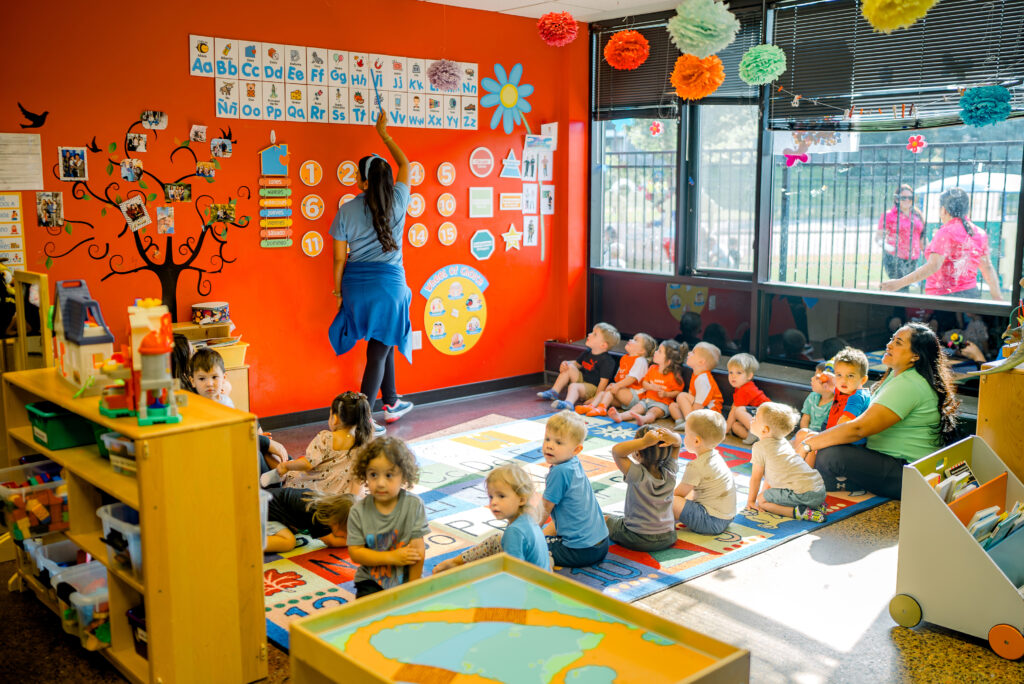
Here are some other ways to support behavioral skills acquisition to get your child ready to learn in the classroom.
Organizing Playdates and Getting Involved in Group Activities: Building social skills through interaction is an important way kids learn. Group games like Simon Says, charades and role playing teach social skills that kids use in kindergarten.
Teaching Sharing and Cooperation: Encouraging kids to play games that foster teamwork, like organized sports, theater, or dance classes are great ways learn social collaboration skills, like waiting your turn.
Understanding Classroom Behavior: Children should practice listening and following instructions before entering the classroom. Spaces like story time at the library, going to a movie or attending religious services are great ways to mimic classroom environments for young children.
Physical Preparation
Recent studies, have shown that certain physical activities like martial arts, yoga, and even some computer-based training modules can improve executive functioning skills in young children. Making sure kids are physically active in a variety of ways in daily life is an important way to prepare them for kindergarten. At Casa, we integrate fine motor skill development into daily routines through painting, crafting, and cooking. Children also enjoy outdoor play and physical activities every day.
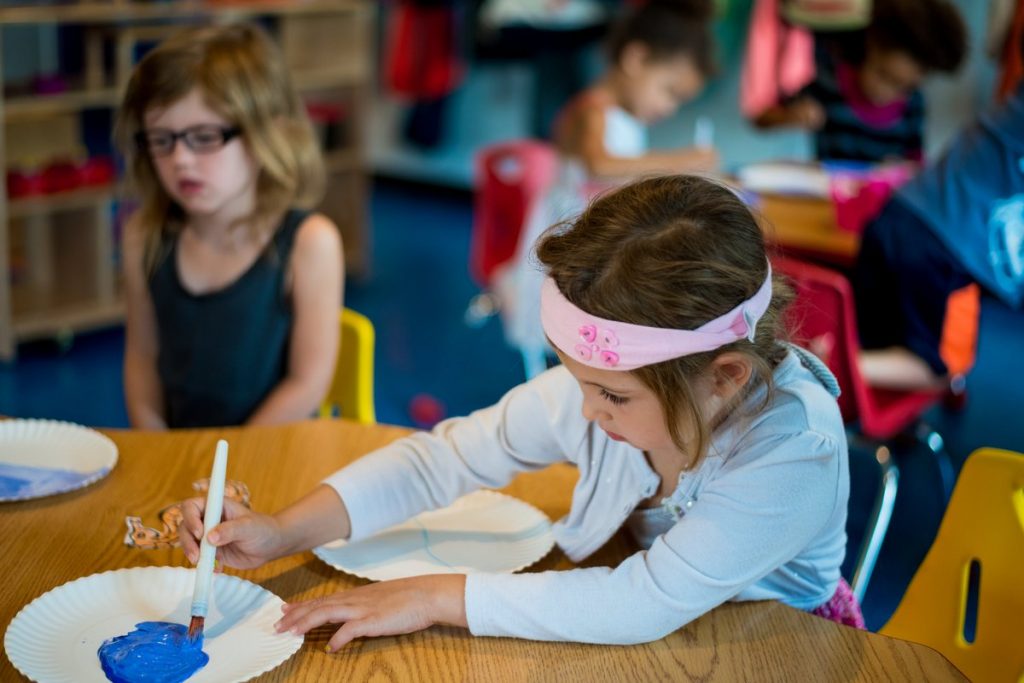
Below are some more ways you can support your child’s physical development in the early years.
Developing Fine Motor Skills: NAEYC recommends the following activities for young children to develop motor skills: cutting with child-safe scissors, finger painting, using a paintbrush, playing with playdough, drawing with crayons, putting together puzzles, and building with small blocks.
Encouraging Physical Activity: Not only is physical exercise important for overall health, in young children it enhances coordination and energy management. Getting outside to the playground or even going for a walk are great ways to get young children moving both mentally and physically.
Creating a Daily Routine: A daily routine is part of school life that children can begin adapting to before entering the classroom. Adhering to a schedule at home helps smooth out the transition to school. Giving kids a more active role at home with chores helps with self-esteem and motor skills.
Try Pre-K
Quality early childcare is one of the best ways to make sure your child is ready for kindergarten. Justice says, “We know from large-scale studies that high-quality child care can build all the many skills entailed in getting kindergarten ready.” Consider enrolling your child in a high quality Pre-K program like ours at Casa. Our pre-K curriculum is designed to foster kindergarten readiness through an innovative bilingual and intercultural curriculum. We approach teaching from a whole-child perspective. This means academic, social, physical, and emotional development are linked together to best help kids reach their milestones. Pre-K is a great way to be sure your child is prepared for the challenges of kindergarten and beyond.
Child development requires consistency and communication among everyone involved in caretaking for kids to thrive. If enrolling your child in Pre-K, be sure to take an active role in their learning at the center by forming positive relationships with educators and caretakers there.
Benefits of Kindergarten Readiness
Children’s preparedness for school is an important predictor of their eventual academic attainment, health, and personal success well into adulthood. Making sure kids are kindergarten ready can help reduce risks for later academic and social impairments in adolescence.
Academic Benefits
Learning in early childhood makes kids better at skill-building throughout school. Kindergarten readiness builds foundational cognitive abilities like attention span, memory, and reasoning, which are essential for learning for the entire academic career. Doing better in school from the get-go can help kids find a love of learning and develop an understanding of their own values and interests. Success in kindergarten makes a difference for how kids relate to the learning process. Casa de Corazón’s unique approach to early childhood education lays a strong academic foundation by integrating cognitive development with real-world applications. These skills continue to benefit Casa kids throughout their student career.
Social and emotional regulation benefits
“Although kindergarten knowledge of numbers and vocabulary represent robust indicators of children’s readiness to learn at school entry, self-directed learning skills are also important in meeting the challenges of the elementary school classroom,” this Yale study has found. Being ready for kindergarten means kids feel self-assured. This lowered anxiety helps them learn to share, take turns, and work in groups. At Casa de Corazón, we focus on helping kids develop emotional intelligence through guided peer interactions and cultural experiences. Children learn to navigate group dynamics, share, and collaborate effectively, social skills that they will need in kindergarten and beyond.
Conclusion
“How well kids do in kindergarten is predictive of academic achievement in third grade, eighth grade and so on,” Justice says. “If you’re succeeding in eighth grade, you’re going to finish high school. And if you make it to high school – you don’t have attendance issues, you don’t have behavior issues, you’re succeeding in reading development – you’re going to enter some sort of higher education experience.” Kindergarten readiness is a series of buildable skills that parents and caregivers can help kids learn before they enter the classroom.
Kindergarten readiness enables children to be successful throughout life. Early childhood is a key window for acquiring skills that lay the foundation for their school career. Number and letter identification skills, behavioral skills, emotional intelligence, and executive functioning skills should be encouraged at home and in a high-quality Pre-K setting. Making sure a young child’s environment is rich with books, caring interaction, and an appropriate level of autonomy will help them feel confident going into kindergarten.
Interested in pre-K? Enroll your child at Casa de Corazón today.

